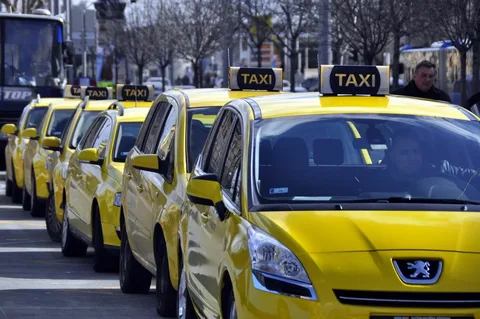Getting to and from the airport can be one of those travel expenses that catches you off guard if you haven’t planned ahead. Whether you’re jetting off on holiday or returning from a business trip, understanding what you’ll be charged for a taxi can help you budget properly and avoid any nasty surprises.
Airport taxi fares across the UK vary considerably depending on which airport you’re travelling to, the distance involved, and the time of day you need the service. The costs can range from as little as £15 for shorter journeys to well over £100 for longer cross-country trips.
Major Airport Transfer Costs Breakdown
Heathrow Airport tends to command some of the highest taxi fares, largely due to its location and the congestion charge that’s often applied. From central London, expect to be charged between £45-£70, though this can increase significantly during peak hours or if you’re caught in heavy traffic.
Gatwick Airport transfers typically cost between £35-£60 from central London areas. The journey time and final fare are heavily influenced by traffic conditions, particularly around the M25 and approaching the airport itself.
Manchester Airport presents more reasonable options for many northern travellers. Local journeys are generally priced between £20-£40, though longer distances can push costs considerably higher. For example, Chorlton to Manchester Airport represents a typical short-distance journey that’s usually completed for around £25-£30.
Birmingham Airport sits in the middle range, with most local transfers being charged between £25-£45. The airport’s central location means journey times are often predictable, which helps keep costs stable.
Edinburgh Airport transfers from the city centre typically cost £20-£35, making it one of the more affordable major airport connections in the UK.
Factors That Influence Your Final Fare
Several variables affect what you’ll ultimately be charged for your airport transfer. Time of day plays a crucial role – night-time surcharges are commonly applied between 10pm and 6am, often adding 20-50% to the standard fare.
Traffic conditions can significantly impact both journey time and cost, especially for metered taxis. During rush hours or when major events are taking place, journeys that normally take 30 minutes might stretch to an hour or more.
The type of vehicle requested also influences pricing. Standard saloon cars represent the most economical option, whilst larger vehicles for group travel or executive cars command premium rates.
Distance obviously matters, but it’s worth noting that many operators charge a minimum fare for airport transfers, regardless of how short your journey might be.
Getting Better Value for Money
Pre-booking your transfer often results in better rates than hailing a cab on arrival. Many taxi services company providers offer fixed-price quotes that protect you from traffic delays and surge pricing.
Comparing different operators can reveal significant price differences, even for identical journeys. Some companies specialise in airport transfers and can offer competitive rates due to their focused service model.
Group bookings typically provide better value per person, especially for families or business colleagues travelling together. Splitting the cost of a larger vehicle often works out cheaper than multiple smaller cars.
Consider the total cost when making comparisons. The cheapest headline rate might not include booking fees, waiting time charges, or other supplements that are added later.
Regional Variations and Considerations
Outside major cities, airport transfer costs can vary dramatically. Rural areas often have higher per-mile charges due to the distances involved and limited local competition.
Taxi services from manchester to surrounding towns and cities demonstrate how quickly costs can escalate with distance, often doubling or tripling for journeys that extend beyond the immediate metropolitan area.
Scottish and Welsh airports generally offer competitive local rates, though connections to English cities can become expensive due to the cross-border distances involved.
Making the Right Choice
Understanding average costs helps you budget effectively, but remember that the cheapest option isn’t always the best value. Reliable service, proper licensing, and good customer reviews should factor into your decision alongside price.
Many experienced travellers find that building relationships with trusted local operators provides both better service and more consistent pricing over time. This approach works particularly well for regular business travellers or those living near major airports.
Planning ahead remains the most effective way to secure reasonable rates and ensure your journey runs smoothly, whether you’re heading off on holiday or returning home after time away.






